
Stories by Robert Arnason

In the second week of November, the Agri-food Innovation Council invited MP Warren Steinley to talk about agricultural research and innovation in Canada. During a webinar, Steinley was asked about the government’s funding priorities and how much it dedicates to climate change research within agriculture. “I think this is an ideological position this government has. […] Read more
Program helps on-farm crop trials gain traction in Sask.
SaskOilseeds’ on-farm research program, which the organization launched last year, helps farmers test their own ideas
WINNIPEG — Many products and practices on the market claim to boost yield and improve profits for growers. Sorting through the claims and recommendations can be messy and confusing. That’s why SaskOilseeds (formerly SaskCanola) launched its on-farm research program — the Top Notch Farming trials — in 2023. The program is bottom-up because growers ask […] Read more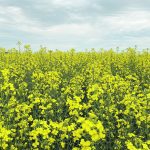
Study finds alkaline soil promotes soil fungus
Alberta researchers determine that verticillium stripe is more severe in canola growing regions where pH is 7.4 to 8.6
WINNIPEG — Verticillium stripe is a more common and troublesome disease for canola growers on the eastern half of the Prairies, particularly in Manitoba. Meanwhile, verticillium isn’t a huge issue in Alberta. There may be a simple reason for this geographic variation — soil pH. Researchers at the University of Alberta have learned that Verticillium […] Read more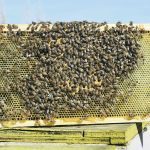
Researchers study how to breed queen bees in Canada
A $4.5 million project will explore how queens and nucleus colonies can be over-wintered to avoid importing them
WINNIPEG — Every spring, Canadian beekeepers deal with the same unpleasant problem. A percentage of their hives fail to survive the winter — possibly 20 to 40 per cent — so they import queen bees and small nucleus colonies from New Zealand, Australia or Hawaii to replace them. Bee experts from British Columbia, Alberta and […] Read more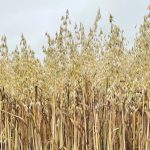
Cutting nitrogen pays off in oats — if it’s drier
WINNIPEG — It’s possible to make more money from oats by reducing fertilizer rates, says research done at four sites in Saskatchewan. However, like most things in farming, a lot depends on the weather. Less nitrogen equalled more profits in trials done in 2023 because it was a dry growing season. “When you are reducing […] Read more
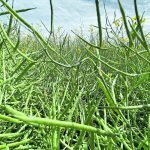
Canola yields fizzle
WINNIPEG — Like most farmers, David Altrogge likes to talk about yield. Altrogge has spoken to multiple growers this fall in northeastern Saskatchewan and he’s learned that most producers were disappointed by their canola yields. In a good year, farmers in the region around Melfort and Humboldt would post yields higher than 50 bushels per […] Read more
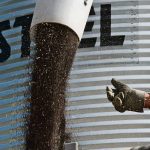
Canola production could be 17-18 million tonnes
Provincial yield estimates say 33 bushels per acre in Alberta and Saskatchewan
WINNIPEG — Crop analysts, production specialists and provincial crop reporters are all leaning in the same direction — the 2024 canola crop could be much smaller than anticipated. It’s possible that canola production could be in the range of 17 to 18 million tonnes, significantly lower than Statistics Canada estimates of 19 million. In late […] Read more
Alkaline soil promotes soil fungus
Verticillium is more severe when pH is 7.4 to 8.6, according to Alberta research
WINNIPEG — Verticillium stripe is a more common and troublesome disease for canola growers on the eastern half of the Prairies, particularly in Manitoba. Meanwhile, verticillium isn’t a huge issue in Alberta. There may be a simple reason for this geographic variation — soil pH. Researchers at the University of Alberta have learned that Verticillium […] Read more
Manitoba-made butter wins big on world stage
Middlebro is home to Von Slick’s, but also has other claims to fame:
WINNIPEG — A small butter company from a tiny town in southeastern Manitoba is now a world champion. Von Slick’s, which manufactures infused butter in the community of Middlebro, won first and second prizes in early October at the World Dairy Expo in Madison, Wisconsin. Infused or flavoured butter combines butter with other ingredients such […] Read more
Feds not expected to resume supplement testing
WINNIPEG — Some farmers and producer groups would like the federal government to restore testing of non-fertilizer supplements to prove they work before the products are commercialized. That’s unlikely to happen, says a fertilizer expert who has been in the industry for decades. The federal government stopped regulating non-fertilizer supplements in 2013, and efficacy testing […] Read more




